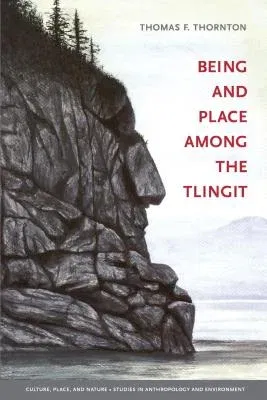In Being and Place among the Tlingit, anthropologist Thomas F.
Thornton examines the concept of place in the language, social
structure, economy, and ritual of southeast Alaska's Tlingit Indians.
Place signifies not only a specific geographical location but also
reveals the ways in which individuals and social groups define
themselves.
The notion of place consists of three dimensions - space, time, and
experience - which are culturally and environmentally structured.
Thornton examines each in detail to show how individual and collective
Tlingit notions of place, being, and identity are formed. As he
observes, despite cultural and environmental changes over time,
particularly in the post-contact era since the late eighteenth century,
Tlingits continue to bind themselves and their culture to places and
landscapes in distinctive ways. He offers insight into how Tlingits in
particular, and humans in general, conceptualize their relationship to
the lands they inhabit, arguing for a study of place that considers all
aspects of human interaction with landscape.
In Tlingit, it is difficult even to introduce oneself without
referencing places in Lingit Aani (Tlingit Country). Geographic
references are embedded in personal names, clan names, house names, and,
most obviously, in k-waan names, which define regions of dwelling. To
say one is Sheet'ka K-waan defines one as a member of the Tlingit
community that inhabits Sheet'ka (Sitka).
Being and Place among the Tlingit makes a substantive contribution to
the literature on the Tlingit, the Northwest Coast cultural area, Native
American and indigenous studies, and to the growing social scientific
and humanistic literature on space, place, and landscape.

